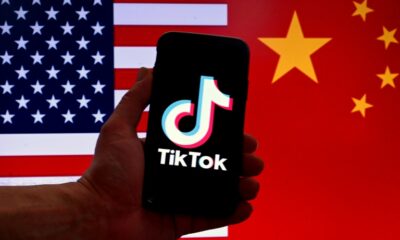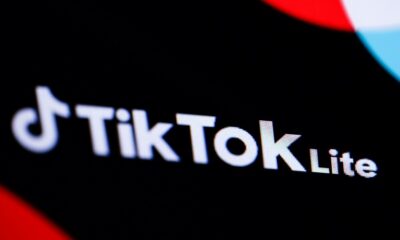A commercial plane photoshopped with the tail of a shark, hashtags that misleadingly evoke sustainability, tokenistic use of minorities to distract and to signal virtue: a Harvard report published Tuesday highlights rampant greenwashing by leading companies on social media.
The investigation, commissioned by Greenpeace Netherlands, involved analyzing the text and images of 2,300 posts by 22 of Europe’s largest carmakers, fossil fuel producers and airlines this June and July.
“During this summer of record temperatures and wildfires in Europe, these fossil fuel interests have remained explicitly silent on the topic of climate change, and instead, they engage in what we interpret to be strategic brand positioning,” lead author Geoffrey Supran told AFP.
Entitled “Three Shades of Green(washing),” the report released during New York’s Climate Week found that only one in five “green” car ads actually present a product for sale, while the rest simply promote the brand as green.
One in five posts by oil, car and airline companies center on sports, fashion or social causes that direct attention away from their core businesses.
Two-thirds of companies’ social media posts painted a “green innovation” sheen on their operations, the report found, with automakers generating by far the most compared with airlines and oil and gas firms.
While there was already some awareness around these trends, Supran said the strength of the new study was its use of peer-reviewed social science methods to lend more quantitative weight.
A key feature of the companies’ posts was how often they were about their sponsorship of sports events or charity, as opposed to talking about what they sell.
“In principle those kinds of activities should be applauded. The issue becomes when corporate philanthropy slips into corporate social responsibility washing, things like greenwashing, sportswashing, and wokewashing,” Supran said.
Examples of greenwashing include an Instagram post by Lufthansa where a plane blends into the body of a shark swimming in the ocean.
The post was to highlight a coating modeled off shark skin that is applied to the plane’s body to improve airflow and reduce fuel consumption.
Tweets by Air France-KLM and Lufthansa promoted their use of biofuel on some routes using the hashtag “SustainableAviationFuel.”
Those posts omit the fact that such fuels constitute only a tiny fraction of overall fuel used by the industry, and not all experts are yet convinced it can power climate-safe air travel, the report said.
– ‘Pretty insidious’ –
Green posts also tend to feature more women, non-binary people and non-Caucasian people — for example, a tweet by Wizz Air on World Environment Day shows an elderly Black woman, who appears to be part tree, part person, standing in a lush green forest.
Not only does the post appear tokenistic, the report said, it also promotes an article about how to reduce personal energy consumption.
This is a widespread corporate practice researchers call “redirecting responsibility” in which individual behavior, rather than the actions of governments and companies, is placed at the center of climate action.
A YouTube video by Fiat meanwhile features a group of attractive youths sailing and driving through beautiful mountains in the Italian countryside.
“Behavioral psychologists have observed significant affective responses from consumers exposed to nature imagery,” explained Supran.
“It can make a company seem greener actually in a unique way that does the subtle work of overriding even the most critical observers in a pretty insidious way.”
Silvia Pastorelli, a Greenpeace campaigner, said in a statement that the report highlighted techniques that had been “hiding in plain sight.”
“This is a systematic greenwashing effort that must be addressed with a legal ban on all fossil fuel advertising and sponsorship across Europe, just as happened with tobacco,” she added.

 Business4 months ago
Business4 months ago
 Business5 months ago
Business5 months ago
 Events3 months ago
Events3 months ago
 People4 months ago
People4 months ago
 Events6 months ago
Events6 months ago
















